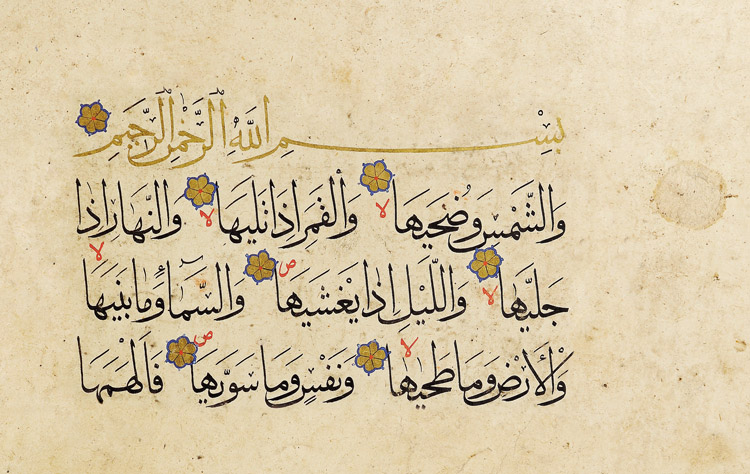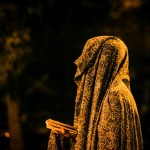Did Allah revealed The Holy Qu’ran in the “Night Of Glory”?

The thing which can be treated to be the basis for the other view is the very statement of the Holy Qur’an, wherein it has been stated that the verses of the Qur’an were revealed in Ramadan. And as the day of the commencement of the prophetic mission is the day of the beginning of revelation of the Holy Qur’an it may be said that the Prophet was appointed to prophethood in the very month of Ramadan. The verses of the Holy Qur’an which indicate that it was revealed in Ramadan are as follows:
In the month of Ramadan the Qur’an was revealed.
(Surah al-Baqarah, 2:185 )
We swear by the Glorious Book that We revealed the Qur’an on a blessed night.
(Surah al-Dukhan, 44:2-3)
And that is the very night of Qadr (glory) which has been mentioned in Surah al-Qadr (verse 1) wherein it has been said:
“We revealed the Qur’an in the Night of Glory.”

Reply By Shi’ah Scholars
The Shi’ah traditionalists and commentators have given various replies and explanations with regard to this argument; some of them are mentioned below:
[su_heading size=”19″]The First Reply[/su_heading]
The above-mentioned verses show that the Holy Qur’an was revealed in one blessed night of the Holy month of Ramadan, which is called the ‘Night of Glory’, but they do not mention the place of its revelation and do not also denote that they were revealed to the Prophet during the same night. It is quite possible that there may have been various revelations of the Qur’an and numerous Shi’ah and Sunni narrations confirm this possibility. One of those revelations is the gradual revelation of the Qur’an to the Prophet and the other is its revelation in installments from the Lauhul Mehfuz to Baytul Ma’mu’r.
Hence there should be nothing wrong in a few verses of Surah al-Alaq being revealed to the Holy Prophet on the 27th of Rajab and the entire Qur’an, in one compact form, being revealed in the month of Ramadan from a place named by the Qur’an as ‘Lauhul Mehfuz’ to another place ‘Baytul Ma’mur.’ This view is confirmed by the very verse of Surah al-Dukhan which says:
“We swear by the glorious Book that We revealed the Qur’an on a blessed night.”
It is evident from this verse (on the strength of the pronoun which turns towards the word ‘Book’) that it was revealed in its entirety during the Glorious Night (falling in the month of Ramadan), and it is only proper that this revelation should be other than the revelation which took place at the time of the appointment of the Prophet to the prophetic mission, because at that time only a few verses were revealed.
In short the verses which indicate that the Qur’an was revealed in the month of Ramadan during the ‘Night of Glory’ cannot be a proof of the fact that the day of the Holy Prophet’s appointment to the prophetic mission, on which only a few verses were revealed, also coincided in the same month, because the aforesaid verses show that the entire Book (the Qur’an) was revealed in that month, whereas, on the day of the Holy Prophet’s appointment to the prophetic mission only five or six verses were revealed.
Hence, the two schools, while explaining the meanings of the above-mentioned verses in their narrations, say that the entire Qur’an was sent down from the ‘Lahhul Mehfuz’ to ‘Baytul Ma’mur in that very month. The Shi’ah and Sunni scholars have quoted the said narrations and in particular Professor Muhammad Abdul Azim Zarqani of ‘Al-Azhar’ university has mentioned them in his book in detail.
[su_heading size=”23″]The Second Reply[/su_heading]
The most sound reply, which has so far been given by the scholars, is the second one. The learned scholar Tabatabai has explained it in detail in his precious book and a gist of it is given below:
The real and actual purpose of the Holy Qur’an saying that: We revealed it in the month of Ramadan is that it was revealed to the Holy Prophet during that month, because besides being revealed in parts the Holy Qur’an possesses a reality about which Almighty Allah informed His great Messenger in a particular night of the month of Ramadan.
As the Holy Prophet possessed knowledge of the entire Holy Book, he was directed not to make haste in divulging its contents and to wait till he received orders regarding its communication to the people gradually. The Holy Qur’an says: Do not make haste in narrating the contents of the Qur’an till you receive orders in this behalf through revelation.
This reply shows that the Holy Qur’an possesses a total existence which was revealed in its entirety at one time in the month of Ramadan and it also possesses a gradual existence which lasted from the day of the Holy Prophet’s appointment to the prophetic mission up to the end of his life.

[su_heading size=”19″]The Third Reply[/su_heading]
As has been explained briefly regarding the different kinds of revelation, it has evidently various stages. The first stage is that of true visions and dreams. The second stage is that of oracular and heavenly voices which are heard without facing an angel. And the last stage is that when the Prophet sees an angel and hears the words of Allah from him and learns through him about the realities of other worlds.
As the human soul does not possess the requisite strength to bear the different stages of revelation in the very first instance, it is necessary that the capacity to bear them should develop gradually, it may be said that: on the day of his appointment to the prophetic mission (27th of Rajab) and for some time thereafter the Holy Prophet heard only those Heavenly voices which informed him that he was the Messenger and Prophet of Allah and no verse was revealed during that period. And some time later gradual revelation of the Qur’an began in the month of Ramadan.
By this we mean that the appointment of the Prophet to the prophetic mission in the month of Rajab is not attached to the revelation of the Qur’an in that month. In view of this there should be no discrepancy between the Qur’an being revealed in the month of Ramadan and the Prophet being appointed to the prophetic mission in the month of Rajab.
Although what has been stated above does not conform to numerous texts (because many historians have said explicitly that the verses of Surah al-Alaq were revealed on the very day of the appointment of the Holy Prophet to the prophetic mission), still we possess some narratives, which tell us that on the day of the Holy Prophet’s appointment to the prophetic mission he heard oracular voice, and which do not say anything about the revelation of the Holy Qur’an or its verses.
They explain the matter by saying that on that day the Holy Prophet saw an angel who said to him “O Muhammad! you are the Messenger of Allah “. And in some of the narrations only hearing of the voice by the Prophet has been mentioned and nothing has been said about his seeing the angel.


